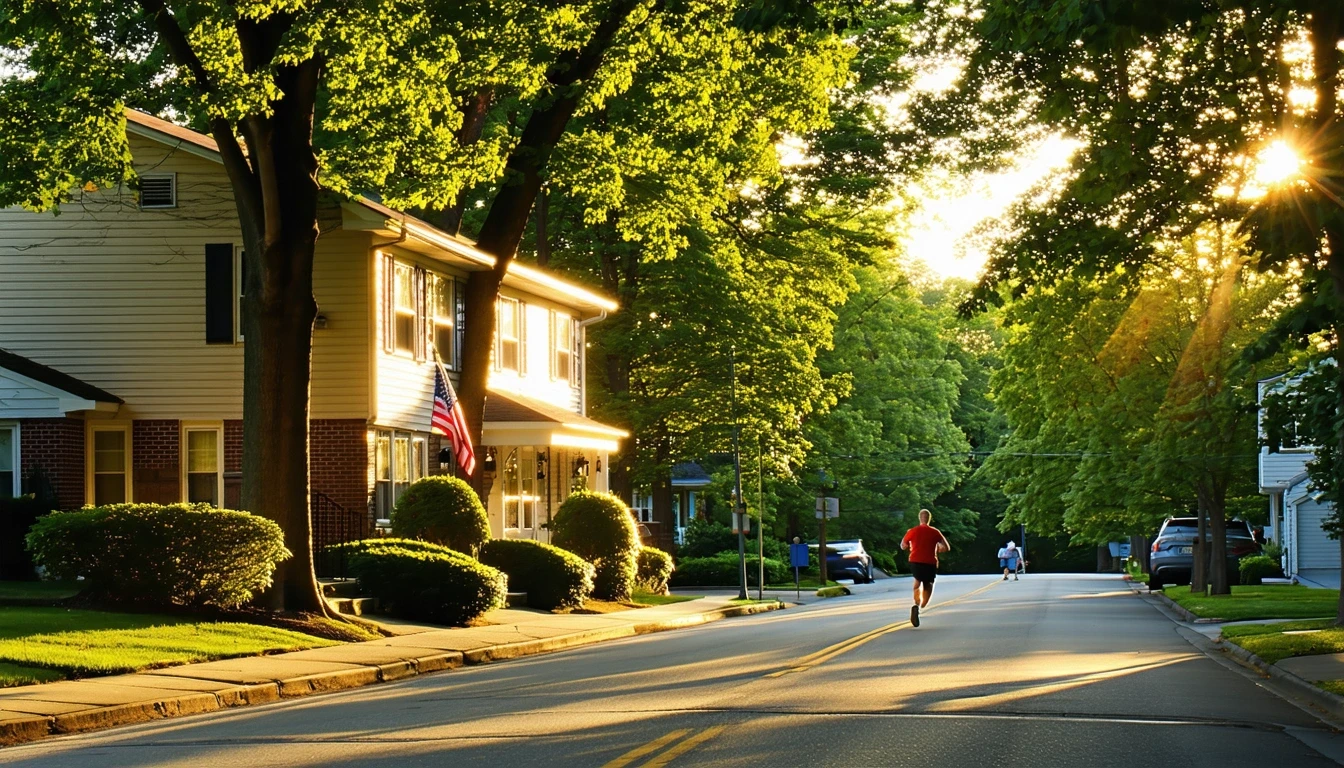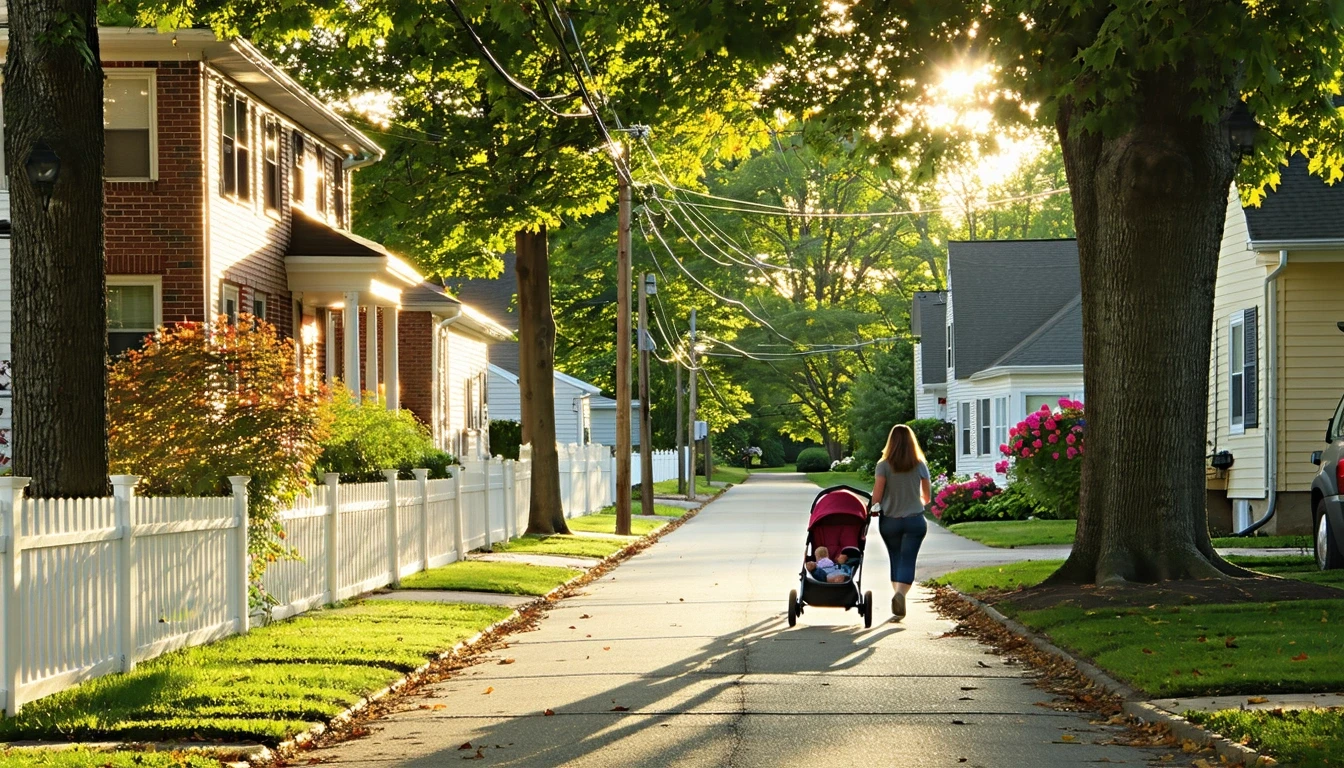
Mclean, VA vs. Vienna, VA: Cost of Living Comparison (2025)
When considering a move to the Washington D.C. metro area, many people assume that Mclean is the more affordable option compared to Vienna. But is this really true in 2025? As two popular suburbs known for their excellent schools, safe neighborhoods, and easy access to the nation’s capital, both Mclean and Vienna offer appealing lifestyle options for families and professionals alike. However, when it comes to cost of living, there are some notable differences that could sway your decision.
In this article, we’ll dive into a detailed comparison of monthly expenses in Mclean vs Vienna, covering everything from housing and utilities to groceries and taxes. Whether you’re a young professional seeking an urban-adjacent apartment or a growing family in need of more space, understanding the true costs of living in each city will help you make an informed choice for your budget and lifestyle in 2025.
Housing Costs: Mclean vs Vienna
Housing is often the biggest line item in any household budget, and the Mclean vs Vienna matchup is no exception. In 2025, the median home price in Mclean hovers around $1.2 million, while Vienna comes in slightly lower at $950,000. For renters, a typical 2-bedroom apartment runs about $2,400 per month in Mclean compared to $2,200 in Vienna.
However, these median prices don’t tell the whole story. Mclean offers a wider range of housing options, from modest 1960s ramblers to luxurious new construction, which can mean more affordable entry points for budget-conscious buyers. Vienna, on the other hand, has a higher percentage of single-family homes and a more limited supply of apartments and condos, which can drive up prices for those seeking low-maintenance living.
| Housing Type | Mclean | Vienna |
|---|---|---|
| Median Home Price | $1.2M | $950k |
| 2BR Apartment Rent | $2,400 | $2,200 |
| 3BR House Rent | $3,800 | $3,500 |
For young professionals and couples without children, renting in Vienna may offer savings of $200-300 per month compared to similar apartments in Mclean. Families looking to buy a home will find more affordable options in the $800k-$1M range in Vienna, while Mclean’s sweet spot for single-family homes starts closer to $1.1M. Ultimately, your specific housing needs and budget will determine which location offers the best value.
Winner: Vienna has the edge for most budgets, with lower median home prices and rents. However, Mclean offers more diverse housing options at both ends of the price spectrum.
Utility Costs in Mclean and Vienna
With similar climates and home sizes, utility costs in Mclean and Vienna are fairly comparable. Residents in both cities can expect to pay around $150-200 per month for electricity, with usage peaking in the hot summer months due to air conditioning needs. Gas bills average $50-100 per month, with spikes in the winter for heating.
One key difference is the age of the housing stock. Mclean has a mix of older and newer homes, while Vienna trends toward older construction. This means that some Vienna residents may face slightly higher heating and cooling costs due to less efficient systems and insulation. However, both cities offer energy-saving programs and audits to help homeowners optimize efficiency.
For a typical family home, monthly utility costs pencil out to around $250-300 in both Mclean and Vienna. Apartments and condos will see lower bills, while large estates can easily double these costs. Budget-conscious residents can trim expenses by adopting energy-saving habits and upgrading to efficient appliances over time.
Winner: It’s a tie. Mclean and Vienna residents can expect similar monthly utility expenses, with minor variations based on home age and size.

Comparing Grocery and Food Costs
Feeding a family is another major expense category, and here Mclean and Vienna offer similar options at comparable price points. Both cities have a mix of major grocery chains like Giant and Safeway, along with upscale markets like Whole Foods and Balducci’s. Expect to pay around $3.50 for a gallon of milk, $2 for a loaf of bread, and $4-6 per pound for boneless chicken breast.
Dining out is also similar, with a range of casual and upscale restaurants in both cities. A typical fast-casual meal runs $10-15 per person, while a nice dinner out can easily top $30-50 per plate. However, Vienna does have a slight edge when it comes to independent restaurants and local flavor, with a charming small-town feel in its walkable downtown.
For a family of four, a typical monthly grocery budget in either city will land around $800-1,000, assuming a mix of dining out and cooking at home. Singles and couples can get by on $400-600 per month. Eating out frequently or opting for premium ingredients will push these totals higher.
Winner: Vienna gets the slight nod for its greater variety of local dining options, but grocery staples and costs are nearly identical in both cities.
Comparing the Tax Burden in Mclean vs Vienna
As affluent suburbs, both Mclean and Vienna have above-average tax rates compared to the national median. However, there are some differences that can impact your bottom line. Mclean’s property tax rate is 1.13%, while Vienna’s is slightly higher at 1.23%. For a $1M home, that equates to an extra $1,000 per year in Vienna.
Sales tax is identical in both cities at 6%, a combination of Virginia’s 5.3% state tax and the 0.7% local tax. Gas taxes are also the same, at $0.162 per gallon. One notable difference is personal property tax on vehicles, which is 4.57% in Fairfax County (Mclean) compared to 3.70% in the town of Vienna. For a $20,000 car, that means an extra $174 per year in Mclean.
Income taxes are handled at the state level, with Virginia using a progressive bracket system. Rates start at 2% for income up to $3,000 and climb to 5.75% for income over $17,000. These rates apply equally to Mclean and Vienna residents. Overall, the tax picture is mixed, with Mclean offering an advantage on property taxes while Vienna wins on vehicle taxes.
Winner: Vienna has a slight edge for most residents due to lower vehicle taxes, but homeowners with high-value properties may fare better in Mclean.
Cost of Living Comparison Summary
| Category | Mclean | Vienna |
|---|---|---|
| Housing (Median Home Price) | $1.2M | $950k |
| Utilities (Family of 4) | $250-300 | $250-300 |
| Groceries (Family of 4) | $800-1,000 | $800-1,000 |
| Transportation (Gas, Car Tax) | Higher | Lower |
| Taxes (Property, Sales) | Mixed | Mixed |
| Estimated Monthly Total | $6,500 | $6,250 |
Methodology: Estimates reflect 2025 costs for a mid-size family (2-bedroom apartment or 3-bedroom home) using published national data and regional benchmarks. Actual expenses will vary with household size, lifestyle, and neighborhood.
When tallying up the total cost of living in Mclean vs Vienna, a typical family can expect to spend around $6,500 per month in Mclean compared to $6,250 in Vienna. While housing costs are the main driver of this difference, transportation and taxes also play a role. Of course, these numbers can swing significantly based on individual factors like home size, commute, and consumption habits.
Lifestyle Considerations in Mclean vs Vienna
While costs are a key factor in deciding where to live, it’s also important to consider the lifestyle tradeoffs between Mclean and Vienna. Mclean offers a bit more of an urban feel, with high-rise apartments, upscale shopping centers, and a quicker commute into D.C. proper. It’s a great fit for professionals who value city access and amenities.
Vienna, on the other hand, has a quaint small-town atmosphere, with a walkable downtown, abundant parks and trails, and a tight-knit community vibe. It’s ideal for families who prioritize space, top-notch schools, and a slower pace of life. Vienna’s crime rate is also slightly lower than Mclean’s, adding to its appeal for those with children.
Both cities boast excellent public schools, with Mclean High School and James Madison High School in Vienna regularly ranking among the best in the state. Mclean does have the edge for private school options, with prestigious choices like the Potomac School and Madeira School within its borders. Vienna offers more in the way of public parks and recreation, with gems like Meadowlark Botanical Gardens and Wolf Trap National Park for the Performing Arts.
Commuters will find a range of options in both cities, though Mclean does offer more direct routes into the District. The Silver Line Metro serves Mclean, while Vienna residents rely on the Orange Line or must drive to West Falls Church to catch the Silver. Both cities offer bus service and easy access to major highways like I-66 and the Dulles Toll Road.
Ultimately, the lifestyle differences between Mclean and Vienna are subtle but distinct. Young professionals and those who value urban amenities will likely prefer Mclean, while families and those seeking a suburban oasis may find Vienna more appealing. Consider your commute, school needs, and recreational priorities in addition to budget when making your choice.
Frequently Asked Questions
Is Mclean more affordable than Vienna in 2025?
While Mclean has higher housing costs on average, it’s a close call on overall affordability. Vienna has the edge on vehicle taxes and slightly lower rents and home prices, but Mclean offers more diverse housing options and lower property taxes. Ultimately, your specific budget and needs will determine which city is more affordable for you.
How do grocery costs compare between Mclean and Vienna?
Grocery costs are nearly identical in Mclean and Vienna, with major chains and upscale markets available in both cities. Restaurant prices are also comparable, though Vienna does offer more in the way of local dining options. Expect to spend $800-1,000 per month on food for a family of four in either location.
Are property taxes higher in Vienna than in Mclean?
Yes, Vienna’s property tax rate of 1.23% is slightly higher than Mclean’s rate of 1.13%. For a $1M home, that equates to an extra $1,000 per year in Vienna. However, Mclean has higher vehicle property taxes, at 4.57% compared to Vienna’s 3.70%.
What is the average monthly cost of living for a family of four in Mclean vs. Vienna?
A typical family of four can expect to spend around $6,500 per month in Mclean compared to $6,250 in Vienna. This includes housing, utilities, groceries, transportation, and taxes. However, these numbers can vary widely depending on factors like home size, school choices, and lifestyle habits.
Is Mclean considered a better value for homebuyers compared to Vienna?
It depends on your budget and priorities. Mclean has a wider range of housing options, including more affordable condos and townhomes that may appeal to first-time buyers. However, Vienna offers lower prices on average for single-family homes, making it attractive for families with more flexible budgets. Consider your specific housing needs and budget to determine which city offers better value for you.
Conclusion
While Mclean and Vienna offer similar amenities and lifestyles, there are some key differences in cost of living that can impact your decision on where to call home. Vienna comes out ahead for most budgets, with lower housing costs, vehicle taxes, and a charming small-town feel. However, Mclean offers more diverse housing options, a quicker commute to D.C., and a more urban atmosphere that may appeal to young professionals.
Ultimately, the right choice depends on your specific priorities and budget. Use this guide as a starting point, but be sure to dive deeper with our monthly budget calculator and detailed cost of living breakdown for each city. And if you do decide to make the move, our guide to the best moving companies can help you get settled in your new home with minimal stress and expense. No matter which city you choose, Mclean and Vienna both offer a high quality of life and plenty of opportunities to thrive in the D.C. metro area.
